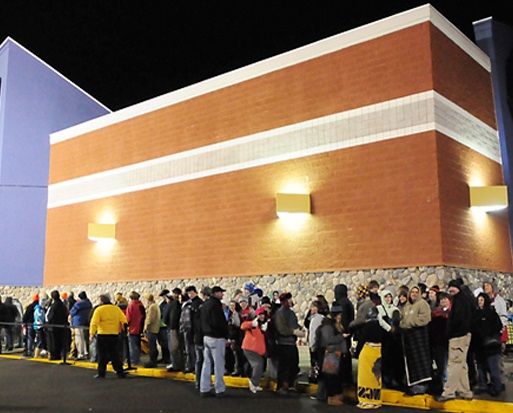Greater Miracles
By Anthony Casperson
12-8-18
Part of the reason why I tend to take time during this holiday season to talk about those who struggle with depression, anxiety, and other similar neuro-atypical occurrences is because in our rush to accomplish the many various errands of the season, we tend to forget that there are people around us suffering. Trying to find that perfect gift for a loved one, finding the best deal on the food to be feasted upon, and planning travel agendas keep us so busy in our own thoughts that the suffering of those around us is lost in the bustle.
It’s not that giving gifts, preparing meals, and visiting loved ones are bad things. To the contrary, they’re all good things, but those who suffer in secret are often left to suffer more as we focus on the traditions rather than the people we are called to love.
We might grow agitated that part of the meal ended up a little bit burnt, while there are family members sitting right next to us who wish we would care as much about their pain as we do about the food. We can complain about long lines or delayed flights, all the while the people to whom we’re complaining wish that they could spend time with their families. Some might even have such bad relations with their family that there is no going home.
In our desires for what we want, even if they are good, we often miss opportunities to help suffering people. And sometimes in our rush to get good things for ourselves and our loved ones, we might miss a greater miracle, in the life of a suffering person AND in our own life.
Jesus came to save the world, but as he traveled this earth he took the time to care for those whom others would brush away. One example of this that I mentioned in my first sermon series for this website comes to mind right away.
In Luke 8:41, we come across a leader of the city’s synagogue named Jairus. His twelve-year-old daughter was sick and about to die. He came to Jesus because he knew the power of God flowed through this God-man. The whole entourage with Jesus went along to heal the girl.
However, the following verses show us that on the way a woman who had suffered for twelve years came up to find healing from the Messiah as well. Her suffering was hidden, but kept her from engaging in everyday interpersonal interactions. She had suffered for these years with a constant menstrual flow.
However, even above and beyond how bad that medical condition would be, the addition of social rejection would add to the pain. In Jewish culture at the time, being ritually clean held a place of importance. Those with open wounds, or otherwise have bleeding conditions, are not considered ritually clean. And anyone who touched them would be unclean until after sunset the day they washed.
This woman suffered alone, without much (if any) human contact for twelve years. She’d gone to doctors, trying to find the cure, all for nothing as they had no answers. She’d come to Jesus to be healed, but this highly important leader of the city got to him first. What was her suffering in the face of a little girl’s possible death?
So, she neared the Messiah, reached out her hand, and touched him, believing that a single touch could heal. It wouldn’t be much of a bother. She’d get about as much interaction as she’d grown accustomed to. But Jesus isn’t one to overlook a suffering person.
He stopped. The entire cavalcade halted. I’m sure Jairus was looking around trying to make this horde get a move on. His daughter’s life was on the line. But Jesus knew that his power had healed someone. And he needed to speak words of life to them.
He looked around asking who touched him. The Disciples all laughed at Jesus, “What do you mean who touched you? You’re in the middle of a crowd. Who didn’t touch you?” But the Savior of the world had just saved a single person and he had to acknowledge it. They needed him to acknowledge it.
In shame, the woman spoke up. All eyes on the woman who had just made everyone in the crowd be considered ritually unclean, and had touched Jesus with unclean hands. But Jesus, with a single smile amidst a sea of faces who over looked her until this moment, speaks the most amazing words this woman had ever heard. “Daughter, your faith has made you well. Go in peace.”
And as tears streamed down this healed daughter’s face, more tears would come for another daughter who seems to be less well off. Jairus is told by another that his daughter had died. Likely thinking, “If only that needy woman hadn’t stopped Jesus, he might have saved my daughter. She could’ve waited a few more minutes until my daughter was healed.”
But Jesus shows a greater miracle than just healing a twelve-year-old girl. He healed a twelve-year-old disease in a woman and then went to raise the girl from the dead. Jairus’s daughter breathed again even though all but Jesus had given up hope.
That family not only witnessed the healing of their daughter, but a miracle far beyond what they expected, all because Jesus took the time to ease the suffering of another. The hurry of the situation could have pushed him to miss one suffering person while others settled for a lesser miracle.
I’m not saying that, if we take time to care for those who suffer around us, we’ll automatically receive great miracles in our lives. However, I am saying that if we allow busyness to direct our attention away from those who suffer, there won’t be the opportunity for the greater miracles to happen.
Don’t let the season rush us to forget those who suffer.




